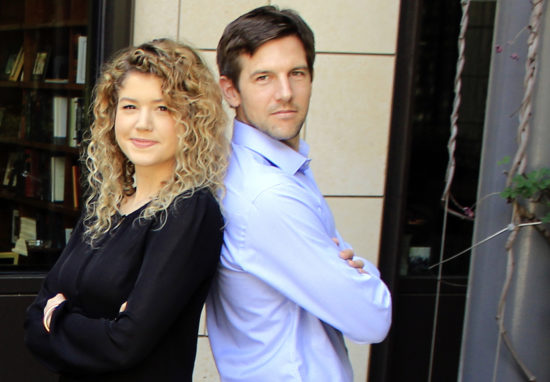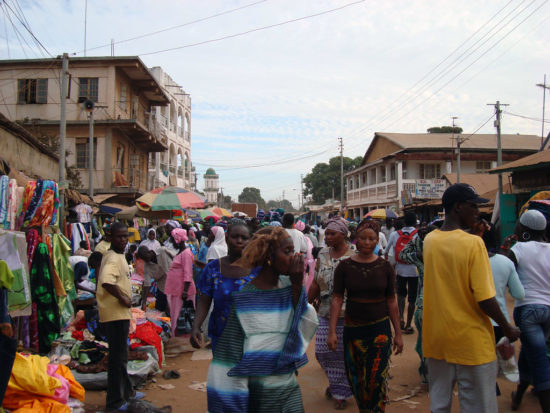No Safe Haven for Human Rights Violators

Stanford’s International Human Rights and Conflict Resolution Clinic is a bit different than the rest of the Mills Legal Clinic. Beyond jurisdictional differences, many other clinics directly represent clients and go on to win or lose cases in a matter of months. In the world of international human rights, it can sometimes be harder to see the tangible impact of one’s work. Often times, our clinical efforts support human rights reporting that seeks systematic change that is complimentary to human rights cases, which can last more than a decade. Our “clients” or partners may also be a bit less traditional. As a case in point, while the Federal Bureau of Investigation (FBI) may be on the opposite side of the aisle from some other legal clinics, we have supported the FBI’s International Human Rights Unit as they pursue human rights violators around the globe. This partnership is an incredible opportunity but – as with any U.S. government partnership – it presents its own challenges. One is simply that, while clinical students know they are providing their contributions directly to U.S. government officials, for security reasons, the government cannot share how they might use any of the information presented. That’s why it was particularly gratifying to see one of the individuals we identified as a Gambian human rights violator, Michael Correa, arrested in the United States just months after the clinic filed its Gambia report in June.
By way of background, in Spring 2019, the Clinic began a project with the U.S. Human Rights Violators War Crimes Center (HRVWCC), an interagency fusion center that coordinates across four federal departments and agencies to pursue perpetrators of human rights abuses. Clinical students met with representatives of the Center on campus and, after months of interviews and research, prepared reports detailing information on human rights violators from target countries to assist the U.S. government in identifying suspected perpetrators known to be in the United States or who may travel here.
Clinical students examined atrocities in three regions – Kurdistan, Yemen, and Gambia – identifying individuals and units who may be responsible for human rights violations, such as involvement in genocide, torture, war crimes, the recruitment or use of child soldiers, and other gross violations of international human rights. Students reached out to organizations such as Gambia’s Truth, Reconciliation, and Reparations Commission (TRRC) as well as NGOs like Human Rights Watch and TRIAL International. They also combed through victim statements and human rights reports to compile overviews of major atrocities and their presumptive perpetrators, developed in-depth spreadsheets with detailed personal information.
For Gambia in particular, students partnered with the indefatigable ANEKED organization – the African Network against Extrajudicial Killings and Enforced Disappearances – to identify over 70 individuals who have been identified on the basis of alleged contributions to human rights violations through the country’s ongoing TRRC process. This list identified two individuals, including Michael Correa, thought to be in the United States.

Correa was recently located and arrested in Colorado. As a member of former president Yahya Jammeh’s elite killing squad known as the Junglers, Correa has been accused of torture and extrajudicial killing, including the 2013 murders of two Gambian-Americans, Alhagie Mamut Ceesay and Ebou Jobe. In light of the seriousness of the allegations against him, and to reflect the principle that the United States should not be a safe haven for human rights abusers, the government could bring criminal charges against Correa. In particular, Correa could possibly be charged under 18 U.S.C. § 2340, which criminalizes committing torture abroad and engaging in a conspiracy to commit torture. He might also be charged under 18 U.S.C. § 2332, which criminalizes the murder of U.S. citizens abroad. Civil society actors have important roles in this regard in helping to obtain admissible evidence, including statements from witnesses accusing him of crimes as part of Gambia’s TRRC process. U.S. authorities are in contact with the Gambian Ministry of Justice about this case and are likely considering whether, where, and when Correa might be charged. Of particular concern will be the possibility that Correa could disrupt the ongoing peace and reconciliation process if he were returned to The Gambia.
Our clinic team is back at it this Fall 2019 looking into new sets of suspected perpetrators from Iraq, the Philippines, Thailand, Guatemala, El Salvador, and Colombia. In addition to supporting the HRVWCC, clinic students are also part of a coalition of NGOs working with Human Rights First to identify individuals who may be sanctionable under the Global Magnitsky Act, which authorizes the imposition of visa restrictions or financial sanctions on foreign persons engaged in gross violations of human rights or acts of significant corruption.
It has been a clinic highlight to work with the HRVWCC, which plays an essential coordinating role across the U.S. government’s efforts to investigate individuals accused of international crimes, including cases in which Americans are victims or perpetrators of atrocities abroad. Although the Trump administration last year seemed poised to dissolve the FBI’s dedicated human rights unit, the Senate Committee on Appropriations has recently reaffirmed its support (at p. 96) for this interagency institution. The clinic is proud to provide ongoing support to the U.S. government and the HRVWCC’s critical efforts to ensure that human rights violators do not escape justice.
